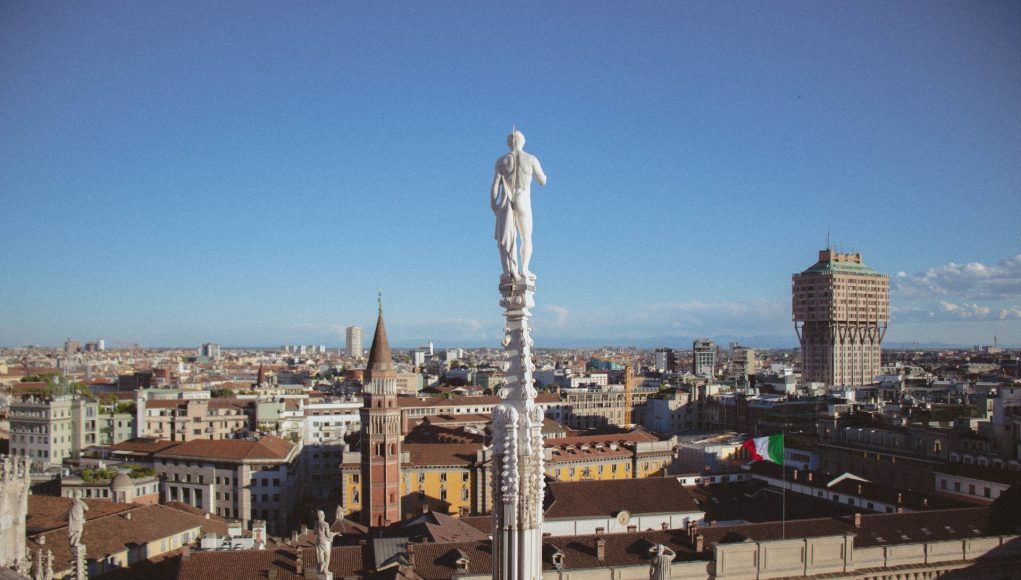UniCredit is one of Europe’s most established and successful banking institutions. With roots in Italy, it’s grown over recent decades to become a significant operator across the continent.
A bank for the new millennium
A modern global financial institution, UniCredit owes its precise foundation to a shakeup in the Italian banking system during the 1990s.
The UniCredit Group was born out of a merger in 1998 between several Italian household banking names.
The two largest were UniCredito and Credito Italiano. Other banks that came together to form the new group between at the turn of the century include Banca dell’Umbria, Cassa di Risparmio di Carpi, Cassa di Risparmio di Trento e Rovereto (Caritro) and Cassa di Risparmio di Trieste.
This created a significant Italian operation that had the scale and experience to grow out of its national base to become a continental operator. Through establishing relationships with other institutions, it has since been able to develop a truly global reach by forging links with partner banks across the world.
Medieval roots
Although UniCredit is a forward-looking institution, parts of the group have a long history stretching back to the beginnings of banking in Italy and Europe.
Mount of Piety institutions were Catholic organisations that provided loans to poor people at reasonable rates. They in effect acted as a combination of pawnbroker and bank, with borrowers providing their valuables as collateral.
Rolo Banca, one of the banks that became part of the UniCredit group, traces its roots back to one such institution in Bologna that was founded in 1473.
Mount of Pieties were frequently founded by Franciscan friars and were inspired by the orders to care for the poor and marginalised. These strong social values have run throughout Italian banking and are present today in UniCredit’s commitment to ESG.
19th-century foundations
The 19th century saw banks being founded across European cities and Italy was no different.
The formation of the UniCredit Group starts with the foundation of Banca di Genova in 1870.
This operated for 25 years until it was renamed Credito Italiano in 1895.
In 1907, it relocated from Genoa to Milan where it operated for 30 years.
The group was nationalised in 1937 by the Italian Institute for Industrial Reconstruction. It remained a publicly owned bank for nearly 60 years until becoming the first Italian state bank to be sold off in 1993.
In the 21st century
The newly privatised bank was now free to grow and develop to meet the challenges of the new century.
Following the modern founding of the group in 1998, UniCredito Italiano started to expand into the emerging Eastern European market.
This began with a move into Poland when the group acquired Bank Pekao. This expansion into new territories continued following the merger with German group HypoVereinsbank (HVB), itself the result of a merger of two Bavarian banks. Further growth took place by the merger with Bank Austria Creditanstalt in 2000.
Since then, a series of mergers, acquisitions and sales have helped to shape UniCredit over the subsequent years.
UniCredit Corporate and Investment Banking division serves 1,500 multinational corporates and key financial institutions. It supports the group’s corporate banking, delivering services to 600,000 public sector and corporate clients.
Its international network now spreads over 16 countries and provides access to 4,000 correspondent banking relationships covering 175 countries.
It now has a presence in New York City, London, Hong Kong, Singapore, Tokyo, Shanghai, Milan, Munich, Vienna, Budapest, Prague, Madrid, Beijing, Mumbai, Athens, Seoul, Zurich, Hanoi, and Abu Dhabi.
A vision for the future
UniCredit is looking to the future under the leadership of group CEO Andrea Orcel.
He recently outlined ambitious plans to take the group forward.
In particular, environmental, social and corporate governance (ESG) initiatives will come to the fore over the five next years. Sustainability will be placed at the heart of everything UniCredit does.
Orcel wants UniCredit to lead by example, not least when it comes to the transition to cleaner energy:
“For us, it is kind of difficult to go to our clients and drive the right behaviours if we cannot point to ours as being an example,” he says.
The history of UniCredit is a great example of how an old institution can adapt and grow to remain relevant in the modern world while setting ambitious targets both for their own growth and the positive impact they can have on the wider community.
















